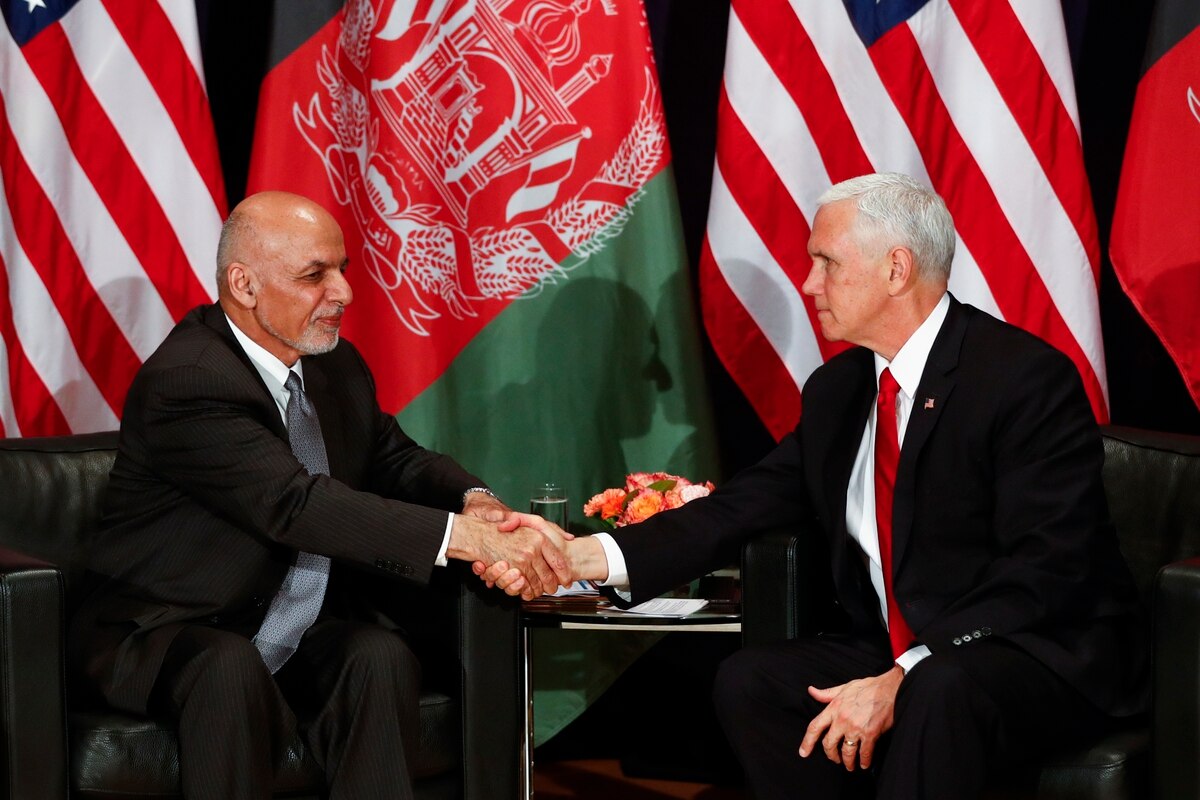Peace deal with the Taliban becoming a reality
https://arab.news/9asns

After months of negotiations, ups and downs and frustrations, the US and the Taliban have finally agreed on the reduction of violence to eventually pave the way for a formal peace agreement between the two sides.
If everything goes well, the peace deal will lead to the end of almost 18 years of US war in Afghanistan and nearly four decades of conflict in the country.
American President Donald Trump has already indicated that the US is very close to reaching a deal with the Taliban. However, the story does not end there. Any possible agreement would have to be followed by an intra-Afghan dialogue in which the Taliban enters into negotiations with the Afghan government and representatives of the Afghan political intelligentsia to negotiate the terms of the political settlement.
It has not yet been confirmed when the partial truce leading to the reduction of violence by both sides will begin. However, there is a high level of optimism that things may be moving quite rapidly.
Despite the fact that there are some concerns within the Afghan government about a clear definition of the reduction of violence, the recent developments are highly significant, having raised the hopes for an enduring peace in the war-ravaged country after decades of bloody conflict that has taken the lives of almost 2 million Afghans.
The US has also lost more than 2,000 of its soldiers and servicemen during the past 18 years of war against terrorism, while spending billions of dollars on the military campaign and reconstruction.
Just days before the Munich Security Conference, Afghan President Ashraf Ghani tweeted that he was called by the US Secretary of State Mike Pompeo informing him about notable progress in the talks between the Americans and the Taliban about significant reduction in violence.
The prospective US-Taliban deal will pave the way for the gradual withdrawal of US troops from Afghanistan, one of Trump’s major foreign policy objectives and a move, if it materializes, that will boost his chances of re-election in the 2020 presidential election. Trump has repeatedly promised the American people a military pullout from Afghanistan and a halt to endless wars, reiterating these pledges in his recent State of the Union address.
Afghans are both optimistic and concerned about the reality of the potential peace deal.
Just a about a week ago, Kabul was witness to a horrific suicide attack that claimed the lives of two civilians and four military personnel. The much talked about reduction in violence must mean a genuine decline in hostilities to allow confidence building between the two warring parties. If fully complied with and respected, there would be high optimism for the anticipated peace agreement to be inked leading to an intra-Afghan dialogue and eventual political settlement.
It is also extremely important for the Afghan government to build national consensus about the roadmap for peace in the country. Although, there have been efforts in the recent past to build such consensus, the attempts have been sporadic and fragmented.
There is a need for a broad-based dialogue among all the political forces and a wide spectrum of Afghan society in the country to bring the hoped-for peace in Afghanistan.
Clearly, it is the government that must take the lead in this regard. It has already established a state ministry of peace for all related matters including coordinating efforts for potential negotiations with the Taliban. Yet, the ministry is an organ of the government and will have limited legitimacy without taking all the major political parties and representatives of the broader Afghan society on board in any peace initiative.
Despite the fact that there are some concerns within the Afghan government about a clear definition of the reduction of violence, the recent developments are highly significant, having raised the hopes for an enduring peace.
Ajmal Shams
One thing is for sure though; all Afghans regardless of political, ethnic and sectarian affiliation put enduring peace in Afghanistan above everything else.
Afghanistan’s ambitious agenda for development and prosperity cannot be accomplished without lasting and sustainable peace in the country. Every Afghan expects the government to set peace-making its top priority through genuine efforts aimed at reaching out to the wider Afghan public as well as regional and international partners.
Recent developments have raised hopes that peace may be closer than ever before. Let us make it a reality.
- Ajmal Shams is president of the Afghanistan Social Democratic Party. He was a deputy minister in the national unity government and served as a policy adviser to Ashraf Ghani before his presidential bid. Twitter: @ajmshams







































